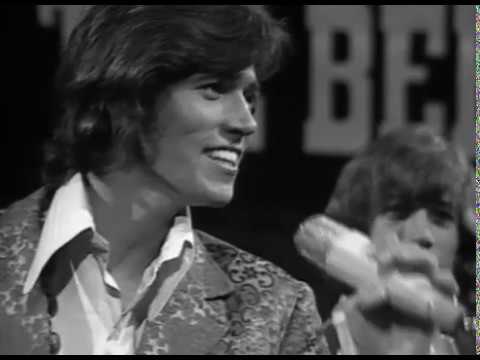The Way We Were – Barbra Streisand
“The Way We Were” by Barbra Streisand is one of the most iconic ballads of the 1970s, known for its emotional depth and nostalgic tone. Written by Marvin Hamlisch with lyrics by Alan and Marilyn Bergman, the song was released in 1973 as the theme for the film of the same name, which starred Streisand and Robert Redford. Its sweeping melody and heartfelt lyrics capture the bittersweet nature of remembering a past love that, though once meaningful, could not withstand the test of time. Streisand’s powerful yet tender vocal delivery gives the song a sense of quiet longing, making it deeply relatable to anyone who has ever looked back on a relationship with both warmth and sorrow.
Lyrically, “The Way We Were” explores the theme of memory and emotional contradiction. It opens with the now-famous line, “Memories light the corners of my mind,” immediately evoking an intimate, reflective mood. The lyrics paint a picture of two people who once shared a deep connection but drifted apart because they were too different to remain together. The words “misty watercolor memories” perfectly describe how recollections soften over time—details fade, but feelings linger. The song doesn’t celebrate reconciliation or regret; instead, it acknowledges that some relationships are beautiful precisely because they belong to the past.
Musically, the song’s orchestration complements its emotional themes. Hamlisch’s melody moves gracefully between soft, introspective verses and a soaring chorus, mirroring the tension between remembering and moving on. Streisand’s phrasing is deliberate and vulnerable, allowing every line to breathe. The lush strings and gentle piano accompaniment heighten the sense of melancholy and nostalgia, giving the song a cinematic quality that matches its origins as a movie theme.
“The Way We Were” became one of Barbra Streisand’s signature songs and a timeless standard in American popular music. It topped the Billboard Hot 100 in 1974 and won both the Academy Award for Best Original Song and the Golden Globe in the same category. Beyond its commercial success, it remains culturally significant because it captures something universal: the ache of remembering love as it was, not as it ended. Even decades later, the song continues to resonate with listeners for its graceful blend of heartbreak, gratitude, and wistful remembrance—a gentle reminder that the past, however imperfect, shapes who we are.








November 15, 2025 @ 10:46 pm
Have always loved this song, it is her (and his) song! A classic. My favorite movie. Yes, there used to be some really good movies back in those days!
November 12, 2025 @ 6:51 pm
Boy, that was one of the oldie BUT GOOD MOVIES, HOLLYWOOD use to produce. Today’s movies are an insult to ones intelligence!